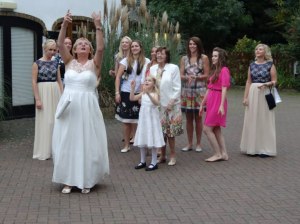Francesca Burgess is happily distracted by research
I first discovered a love for research during my history degree, many moons ago, when given the opportunity to use primary sources as well as secondary. Trawling through the census, parish records and tithe maps almost tempted me to become an archivist. It didn’t occur to me at the time that I’d one day use such research to add authenticity and character to my stories.
 Other of my colleagues have extolled the virtues of the brilliant Google Street View. I can’t overstate the usefulness of this. I once took myself on a ‘drive’ around the Isle of Skye, which was exactly what my character was doing. She needed to stop in the middle of nowhere, park and walk up a hill. Although away from the road, a close aerial view showed me where the path went. There are also photos posted by viewers: very handy for seeing things not visible from the road.
Other of my colleagues have extolled the virtues of the brilliant Google Street View. I can’t overstate the usefulness of this. I once took myself on a ‘drive’ around the Isle of Skye, which was exactly what my character was doing. She needed to stop in the middle of nowhere, park and walk up a hill. Although away from the road, a close aerial view showed me where the path went. There are also photos posted by viewers: very handy for seeing things not visible from the road.
 Even if you do visit a place, and I’ve visited Skye on a number of occasions, Street View is handy for reacquainting oneself with an area. My recently finished novel is set in a place based on Worthing, where I lived as a tot. I wanted to check whether I could see the sea standing in the middle of a certain road. You might think, what difference does it make if it’s only based on Worthing? Consistency. I don’t want a character to be able to see it in one scene, and then not in another. Using a real place (though changing it to suit me!) works for me in that way.
Even if you do visit a place, and I’ve visited Skye on a number of occasions, Street View is handy for reacquainting oneself with an area. My recently finished novel is set in a place based on Worthing, where I lived as a tot. I wanted to check whether I could see the sea standing in the middle of a certain road. You might think, what difference does it make if it’s only based on Worthing? Consistency. I don’t want a character to be able to see it in one scene, and then not in another. Using a real place (though changing it to suit me!) works for me in that way.
A few years back I became hooked on Ancestry.co.uk. I can spend (waste!) hours on it, seeking out my ancestors, but it’s also wonderful for research. A short story I wrote, The Demon Drink is set in a Welsh mining village in 1908. I based it on the village my mother was born in. To get a flavour of it from the time, I explored the 1911 census, finding out something  of the people who lived there (I even found my great grandparents!), the kind of trades apart from mining. It gave me a real insight into the community. There were even two Russians, who I included in the story, surely a bit of a curiosity in 1908 Wales.
of the people who lived there (I even found my great grandparents!), the kind of trades apart from mining. It gave me a real insight into the community. There were even two Russians, who I included in the story, surely a bit of a curiosity in 1908 Wales.
Then there are the purely practical pieces of research, the ones to do with everyday occurrences. I’m talking about dates, sunrise and sunset, the moon, and, because I’ve set most of my novels by the sea, tides. It’s no good saying it’s Easter Day on the one hand, then declaring that the sun was still up at 20.30. I don’t want to inadvertently have a full moon one evening, then state it’s a crescent the next day. I always have to hand a printed calendar for the year/s. On it I mark public holidays, characters’ birthdays and other significant dates for my novel. Along with that, I have websites open to check the sun, moon and tides.
Be sure if you get it wrong, you’ll be caught out by somebody. They say the devil is in the detail, and it’s certainly true of fiction. Just don’t get too distracted by it!
Useful websites:
https://www.google.co.uk/maps?output=classic&dg=crsh
http://www.tides4fishing.com/uk


 ok Voyage of Desire takes place on a cruise ship I could write from a knowledge base because I’ve cruised enough – on a ship, not in my writing – to be true to the facts. A little bit of research was required for one of the ports of call but it was minimal and quite enjoyable. So much so it tried to take me away from my writing because I became so interested in the place I wanted to explore further.
ok Voyage of Desire takes place on a cruise ship I could write from a knowledge base because I’ve cruised enough – on a ship, not in my writing – to be true to the facts. A little bit of research was required for one of the ports of call but it was minimal and quite enjoyable. So much so it tried to take me away from my writing because I became so interested in the place I wanted to explore further.







